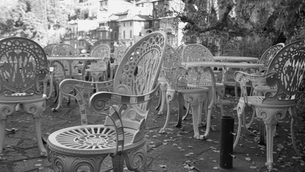As we’ve seen in the previous lessons, to form the passato prossimo we use a past participle and an auxiliary verb, either essere or avere.
Some verbs, however, can be conjugated with either essere or avere depending on how they are used.
Some verbs, however, can be conjugated with either essere or avere depending on how they are used.
- Some verbs require the use of essere as the auxiliary verb when they are used intransitively (without a direct object). When these verbs are used transitively (with a direct object), they use avere as an auxiliary. As you can see in the examples below, sometimes the meaning of the verb changes.
aumentare
Il costo della vita è aumentato.
The cost of living has risen.Ho aumentato il volume della TV.
I turned up the TV volume.bruciare
Il palazzo è bruciato.
The building burned down.Ho bruciato le lettere.
I burned the letters.cambiare
La mia vita è cambiata.
My life has changed.Ho cambiato macchina.
I replaced (traded in) my car.cominciare
Quando è cominciato il film?
When did the film start?Hai cominciato il nuovo lavoro?
Did you start your new job?continuare
La vita è continuata tranquilla.
Life went on peacefully.Ho continuato a fare le cose solite.
I continued to do the usual things.correre
Carlo è corso a casa.
Carlo ran home.Carlo ha corso 5 chilometri.
Carlo ran 5 kilometers.finire
Il film è finito alle 12.
The film ended at 12.Ho finito la ricerca.
I finished the research.passare
Sono passata in palestra.
I stopped by the gym.Ho passato due ore in palestra.
I spent two hours at the gym.salire
Sono saliti sul treno.
They boarded the train.Hanno salito la montagna.
They climbed the mountain.scendere
Siamo scesi dall’autobus.
We got off the bus.Abbiamo sceso le scale.
We went down the stairs.
NB (Nota Bene): This is not an exhaustive list of verbs that can take either essere or avere, but these ones are frequently used.
Also note that correre, salire, and scendere are conjugated with essere when a point of arrival or departure is indicated, but with avere when the action is presented with a direct object.
